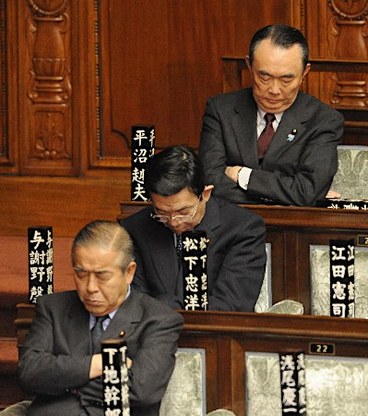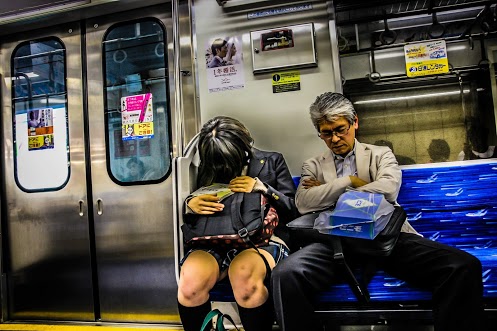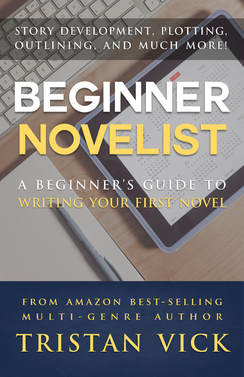 Japan is famous for the image of the salary man (i.e., business man) or politician falling asleep at work. Usually at his desk. While western people may find this odd, sleeping while on the job is surprisingly common in Japan. It's so common in fact that the Japanese have a word for it. It's called inemuri (居眠り) and translates to "sleeping while present." Japan has a sleeping @ work culture. But before we conclude that the Japanese are slacking off, it helps to understand a bit about Japanese culture first. Many Japanese pride themselves on an extreme work ethic born out of the corporate boom of the 80s when companies like Panasonic, Sony, and Toyota rose to be the leaders of their respective industries. Even today, most Japanese workers do not easily accept anything less than perfection, so this perfectionist-mindset, you might call it, often lends to a great deal of personal fatigue. That's only part of it, however. On top of frequently pushing themselves to exhaustion, Japanese people will often work extremely long hours too. Nowhere is this seen better than when we look at Japanese public schools. School teachers in Japan work 12 hour days on average. They work weekends most of the year. An unlike teachers in many Western countries, they don't get summers off. Salary men (business men) will also work around 10 and 12 hour days on average. But when it comes to "crunch" time to finish a project or complete a report, many workers will pull 16 and 17 hour shifts. When I used to teach business English at HONDA, I could always tell by their faces when my students were run ragged by a mandated "crunch". Some of them, who lived out of town, would have to rent a nearby hotel to get four or five hours of sleep, since driving two hours home only to take a shower and drive two hours back to work was out of the question. In fact, Japanese workers are so work obsessed that the idea of a dedicated workhorse ethic it even dictates how they sometimes use their language. As Japan-Talk.com points out: "When people say goodbye to their coworkers in the evening they don't say "have a nice night" or "have a nice weekend". They say "otsukaresama deshita". This can be literally translated as "you are tired, sir". It's the nicest thing you can say to someone after a long day of work — that they are tired. More than this, perhaps, is the fact that sleeping while at work is also largely considered a statement. It's a statement about the long hours you put in, the amount of work you are doing, your status in your company, and how indispensable you are (more on this in a moment). There are other contexts for inemuri as well. College students who cram for exams during exam week will often pull all-nighters just to study for a single test the following day. They call this form of studying "Going SPARTAN" as it is a 'study or die from exhaustion' type of mentality, named after the real Spartans who fought to the death. Once having taken the exam, however, the remainder of the day will be utilized to take as many cat-naps as possible and catch up on their much needed sleep. Usually doing a bit of inemuri in each of their subsequent classes until the bell rings and school is out, at which time they will pull another all-nighter as they cram for tomorrow's next big exam. High school students can be seen power-napping on the train to and from school. Many high school students in Japan head to school on the train at 6 and 7 am. Fraught with fatigue from attending school all day only to head off to club activities till 6 pm after which they head to evening cram school and, finally, staying up late into the morning hours playing video games or texting on their cell phones--Japanese students are frequently sleep deprived. In my days as a TESOL teacher and ALT here in Japan, I noticed that many of my Vice principals would take a bit of inemuri every single day. Something a lower status worker might get chided for if they were abusing their nap privileges. In Japan it is not surprising to see people pass out due to exhaustion. I've seen my co-workers and students suffer from exhaustion on a regular basis. While teaching in Hiroshima, I'd see at least one or two students pass out each month. I've seen my co-workers pass out on numerous occasions too. While in America, where I'm from, people have come to accept mental health days as a necessary aspect of maintaining company morale, here in Japan such 'personal time' is viewed unfavorably. In Japan, taking 'sick days' or 'personal vacation days' is usually taken to mean you're slacking or trying to back out of your duties--since much of Japanese work and school culture is about communal cooperation. Which is why people who might be a little under the weather might push through it and show up to work when they should probably be at home resting--but will take any available opportunity to exercise a bit of inemuri. While it certainly isn't healthy, they proudly wear their bouts of exhaustion like a badge of honor. Passing out from exhaustion isn't a sign that you're weak, it's a sign that you have pushed yourself to the limit and were only defeated by the fact that you're not a tireless robot. Inemuri is usually seen as a good thing in Japan. It means you've been working hard, and so most of the time people leave the power-napper alone. But not just anyone can get away with sleeping at work. Sleeping at work isn't just for the overworked, it's also a sign of who carries the highest amount of respect and most important or vital position. Seeing your boss napping during business meetings, for example, is also common. But it is often hard to tell whether one is engaging in a bit of inemuri or if they simply are trying to concentrate hard. In Japan, making eye-contact is not a form of social etiquette, so closing ones eyes to listen intently isn't viewed as disrespectful like it would in a big corporate meeting in the west. As such, you can see important figures head as well as Japanese politicians often close their eyes and bow their heads in meetings to listen more intently to what is being said (see above picture). Although, to be frank, they sometimes do fall asleep while trying to focus, but because of their high position and important status, it often go ignored and be written off as a harmless bout of inadvertent inemuri. Needless to say, the higher up the chain of command you are, the more likely you are to get away with a bit of inemuri. Your boss, for example, is more apt to be caught napping than anyone else. The head of an entire division at the company, a CEO, or school super intendant, for example, will also likely be able to get away with some frequent inemuri. Getting away with it, so to speak, really depends on whether or not you are indispensable to the company. If not, prepare to be scolded. Or, as my tanto (advisor) used to frequently remind me, "time is money." In other words, there's no time to nap if you're on the lowest rungs of the totem pole. Many office workers who do not have vital position or any privilege will wait until their lunch break to nap at their desk. Others will wait until they get on the train to let themselves catch a quick cat nap, which is why you can frequently see salary men here in Japan sleeping on the train next to high school girls (both engaged in inemuri). In other words, you have to earn the right to power-nap in Japan, not only by working hard but by making a big show of it. Personally, I find the rigmarole of knowing precisely when it's allowed or not allowed too much work, and far too exhausting, for me personally, which is probably why I've never felt the urge to power-nap at work.
4 Comments
10/19/2013 06:53:30 pm
Nice blog, just wanted to say I found you through Google
Reply
Tristan Vick
3/6/2021 02:20:09 am
Thanks for reading!
Reply
Tristan Vick
3/6/2021 02:20:34 am
Thanks. I appreciate the compliment!
Reply
Leave a Reply. |
Tristan VickBy day I am an educator and a cultural ambassador. By night I entertain notions of being a literary master. In reality I am just a family man and ordinary guy who works hard and loves writing just about as much as I love my family. Just about. AVAILABLE NOWNEWSLETTER
|










 RSS Feed
RSS Feed

